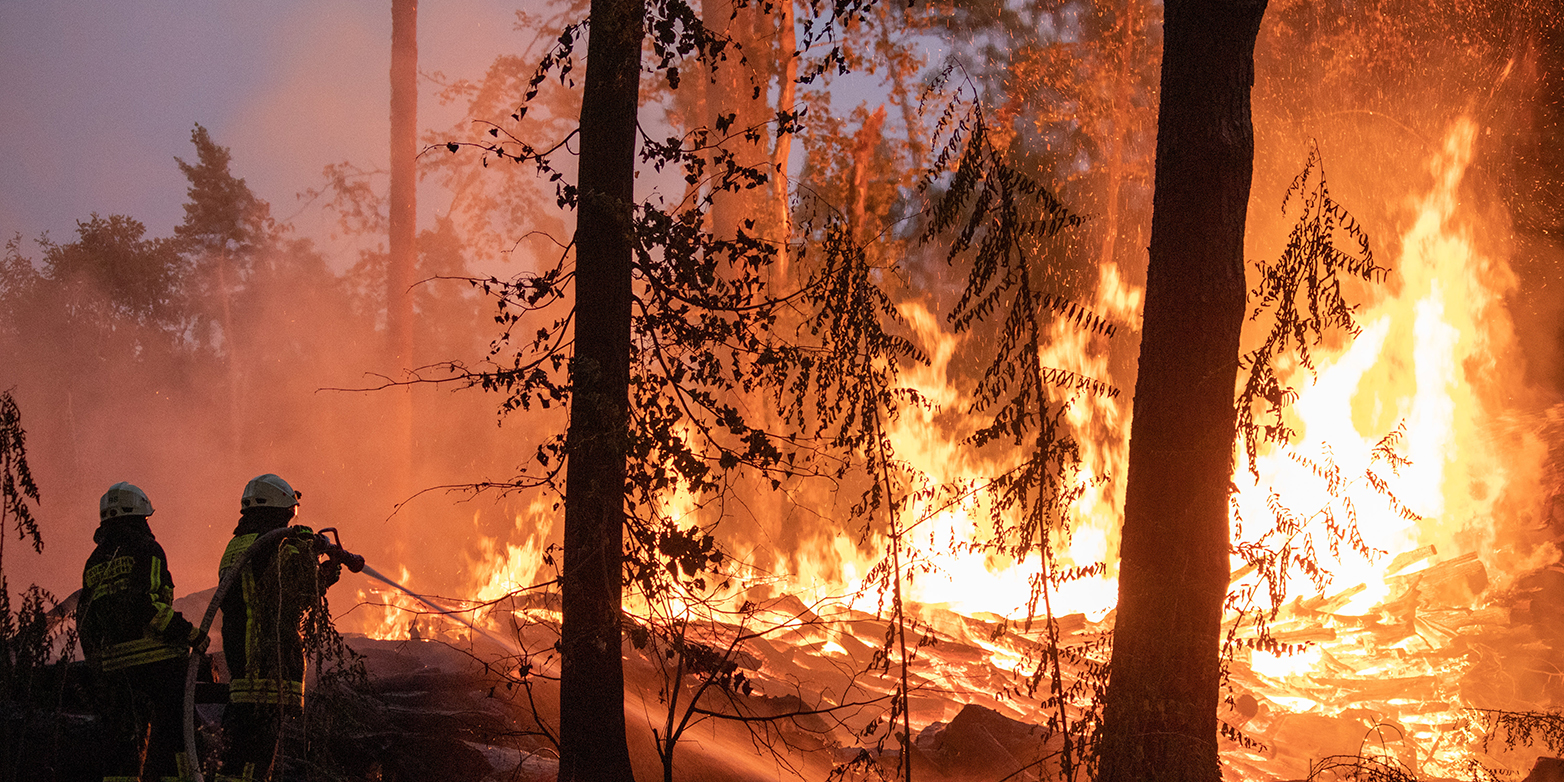Climate change is happening here and now
Climate researcher Sonia Seneviratne contributed to the latest assessment report of the Intergovernmental Panel on Climate Change (IPCC). As she highlights here, the new report clearly demonstrates that we can’t afford to lose any more time when it comes to climate change.

The Sixth Assessment Report of the Intergovernmental Panel on Climate Change (IPCC) on the physical basis of climate change has been released today after more than three years of work by over 230 climate researchers. This is the long-awaited update to the last large assessment report (AR5), which was published eight years ago in 2013. I was a coordinating lead author of the chapter on weather and climate extremes. Additional researchers from ETH Zurich contributed to other chapters as well: Erich Fischer was an author on the chapter on global climate projections, and Martin Wild worked on the chapter on the Earth's energy budget, climate feedbacks and climate sensitivity. To sum up, the evidence in the report clearly shows that climate change is no longer a vague threat in the future: it is happening here and now, and our consumption of fossil fuels is chiefly responsible for this phenomenon.
Unprecedented events
My research areas are weather and climate extremes, and I’ve never received as many requests for my expertise as over the past several weeks. The recent extreme climate events that occurred across the northern hemisphere – from heatwaves and fires in Canada, Greece and Turkey to heavy precipitation and floods in Switzerland and Germany – have endangered the population and left people feeling shaken.
There have always been extreme weather events, of course, but evidence of observed changes in extremes has mounted since AR5. As global warming increases, these changes will worsen, with more regions being affected, and with weather extremes increasing in intensity and frequency in the affected regions. In other words, extreme unprecedented weather events will continue to occur. Terms like “a once in a century storm” will become obsolete.
What particularly worries me is that we will also see increases in compound events resulting from the combination of different changes in the climate system. With polar ice melting, for example, sea levels will rise. At the same time, episodes of heavy precipitation are becoming more frequent. Taken together, both phenomena will cause more flooding in coastal areas. Hot and dry conditions are also occurring simultaneously more often, which significantly increases the risk of fires.
Human-induced climate change
Our conclusions in the latest IPCC report also show that we can more clearly attribute these extreme events to human-induced climate change than was the case when AR5 was published. Some heat waves observed over the past few years would have been extremely unlikely to occur without human influence on the climate system, for instance.
“The latest climate research findings have made it clear that a carbon-neutral world is inevitable.”Sonia Seneviratne
We have a choice: do we want to stop exacerbating the climate crisis, or do we want to increasingly fall victims to more intense and frequent extreme weather caused by our own CO2 emissions? If we want to limit some of these changes, the only option is to progressively reduce our CO2 emissions and reach net-zero CO2 as early as possible. Time is of the essence.
Switzerland not spared
Regional assessments for West-Central Europe show that extreme heat and heavy precipitation have increased over the past several years, a trend that is expected to continue. In addition, with global warming intensifying, the region is projected to be affected by more frequent droughts, which can massively impact ecosystems and agricultural production. One of the most important messages of the report is that climate change is happening in all regions of the globe, and Switzerland is no exception. Developed countries are in no way shielded from the consequences of climate change.

For Switzerland, this means that we need to move on from the failed CO2 law last June and find other ways to ensure that the country can do its part to reduce global-scale emissions. We should not wait until the climate situation becomes so unbearable that we feel forced to act. At that point, it would already be too late: it will take years to build up and switch over to the infrastructure required to support net-zero CO2 emissions. The latest climate research findings have made it clear that a carbon-neutral world is inevitable and that we need to achieve this goal as soon as possible. We can only gain from a shift to a net-zero CO2 world, and thus it is in our own interest – and the interest of Switzerland – to do so.
Steps in the right direction
We can start heading in the right direction with some initial, eminently doable steps. It should be possible for society to shoulder the switch to no longer having petrol-fuelled cars or petrol heating in a few years. Valid technological alternatives exist, such as heat pumps and electric cars. When it comes to mobility, improving public transport and providing train connections that can compete with low-cost flights, both in terms of price and travel time, will also be essential.
We pay a fee for our rubbish bags to discourage unnecessary waste. This is a fair principle: those who produce more waste also have to pay more. I think we can’t avoid applying the same principle to behaviour that creates CO2 emissions. Fortunately, the Swiss are very adaptable and disciplined, as the country’s experience with rubbish bag fees has shown.
We also have to decide more generally about the direction that we as a society want to take when it comes to climate change. The glacier initiative is an excellent next step, offering the option to integrate climate targets into the Swiss constitution in a way that is compatible with the aims of the Paris agreement. Extreme climate events are showing us the way forward. We should recognize the urgency that is clearly apparent from the findings from the AR6 report and do everything we can to stop human-induced climate change from becoming even worse.